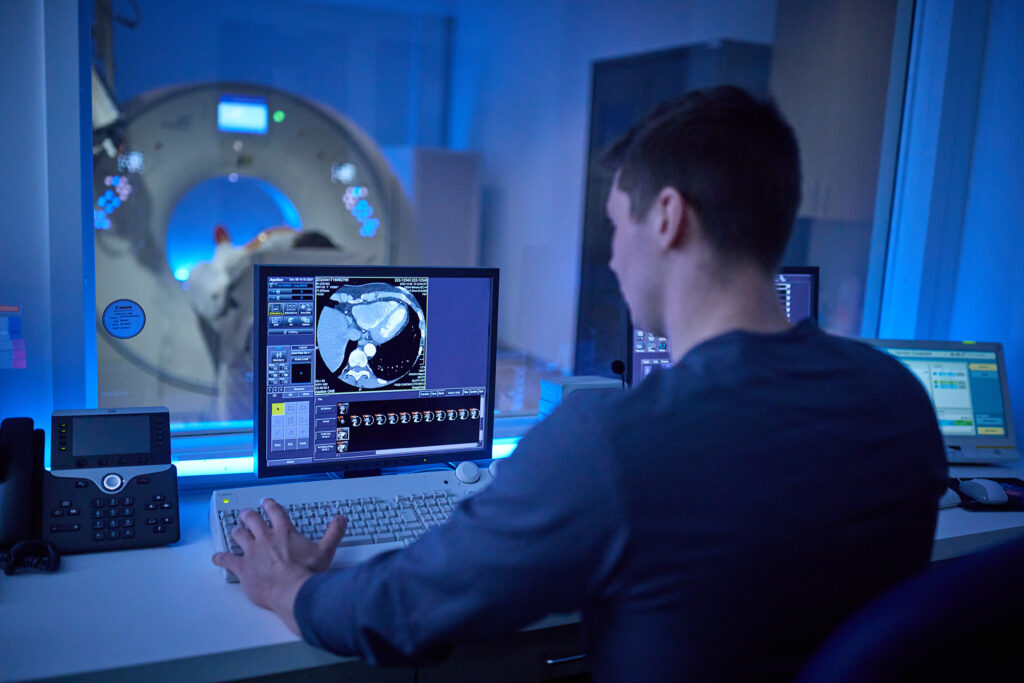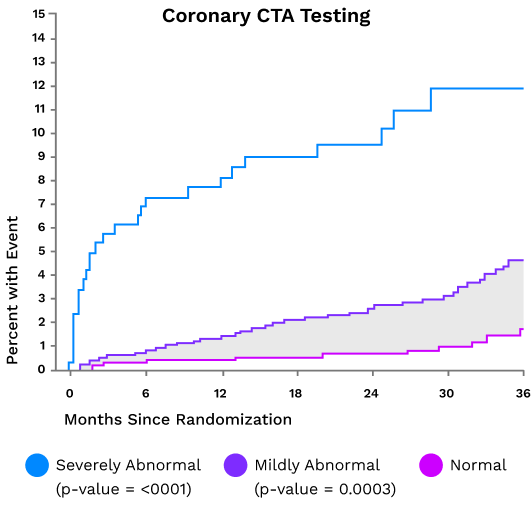Explore the Coronary CTA Advantage
Traditionally, CAD diagnosis has involved various noninvasive tests (e.g., Stress EKG, PET, Stress Echo, and Myocardial Perfusion Imaging [MPI] such as SPECT/PET). While these tests can offer valuable information, they primarily detect indirect markers of disease, which may sometimes lead to diagnostic uncertainty.
Coronary CTA, however, provides direct anatomical visualization of the coronary arteries, enabling a more precise assessment of CAD. This direct visualization helps reduce the risk of false negative and false positive diagnostic results, which can occur up to 30% and 50% of the time respectively with other noninvasive tests.1,2,3

Why Choose Coronary CTA?
Accurate. Predictive. Safe.


Less Patient Radiation Exposure
Antiography
with PCI8
Get to a Diagnosis and
Treatment Decision Faster
With CCTA + Heartflow
As the recommended first test for patients with stable chest pain, CCTA + Heartflow FFRCT provides a faster care pathway.
CTA gives us the information that we were hoping to get from stress testing in a much more accurate and reproducible way the first time.
”




